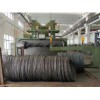Chapter
VII Liability for Medical Malpractice
Article 54 Where a patient sustains any harm during diagnosis and treatment, if
the medical institution or any of its medical staff is at fault, the medical
institution shall assume the compensatory liability.
Article 55 During the diagnosis and treatments, the medical staff shall explain
the illness condition and relevant medical measures to their patients. If any
operation, special examination or special treatment is needed, the medical
staff shall explain the medical risks, alternate medical treatment plans and
other information to the patient in a timely manner, and obtain a written
consent of the patient; or, when it is not proper to explain the information to
the patient, explain the information to the close relative of the patient, and
obtain a written consent of the close relative.
Where any medical staff member fails to fulfill the duties in the preceding
paragraph and causes any harm to a patient, the medical institution shall assume
the compensatory liability.
Article 56 Where the opinion of a patient or his close relative cannot be
obtained in the case of an emergency such as rescue of a patient in critic
condition, with the approval of the person in charge of the medical institution
or an authorized person in charge, the corresponding medical measures may be
taken immediately.
Article 57 Where any medical staff member fails to fulfill the obligations of
diagnosis and treatment up to the standard at the time of the diagnosis and treatment
and causes any harm to a patient, the medical institution shall assume the
compensatory liability.
Article 58 Under any of the following circumstances, a medical institution
shall be at fault constructively for any harm caused to a patient:
1. violating a law, administrative regulation or rule, or any other provision
on the procedures and standards for diagnosis and treatment;
2. concealing or refusing to provide the medical history data related to a
dispute; or
3. forging, tampering or destroying any medical history data.
Article 59 Where any harm to a patient is caused by the defect of any drug,
medical disinfectant or medical instrument or by the transfusion of substandard
blood, the patient may require a compensation from the manufacturer or institution
providing blood, or require a compensation from the medical institution. If the
patient requires a compensation from the medical institution, the medical
institution that has paid the compensation shall be entitled to be reimbursed
by the liable manufacturer or institution providing blood.
Article 60 Under any of the following circumstances, a medical institution
shall not assume compensatory liability for any harm caused to a patient:
1. the patient or his close relative does not cooperate with the medical
institution in the diagnosis and treatment in line with the procedures and
standards for diagnosis and treatment;
2. the medical staff have fulfilled the duty of reasonable diagnosis and
treatment in the case of an emergency such as rescue of a patient in critical
condition; or
3. diagnosis and treatment of the patient is difficult due to the medical level
at the time.
Under the circumstance in item 1 of the preceding paragraph, if the medical
institution or any of its medical staff is also at fault, the medical
institution shall assume the corresponding compensatory liability.
Article 61 A medical institution and its medical staff shall fill out and
properly keep the hospital admission logs, medical treatment order slips, test
reports, operation and anesthesia records, pathology records, nurse care
records, medical expenses sheets and other medical history data according to
the relevant provisions.
Where a patient files a request for consulting or copying the medical history
data in the preceding paragraph, the medical institution shall provide the
data.
Article 62 A medical institution and its medical staff shall keep confidential
the privacy of a patient. If any privacy data of a patient is divulged or any
of the medical history data of a patient is open to the public without the
consent of the patient, causing any harm to the patient, the medial institution
shall assume the tort liability.
Article 63 A medical institution and its medical staff shall not conduct
unnecessary examinations in violation of the procedures and standards for
diagnosis and treatment.
Article 64 The legitimate rights and interests of a medical institution and its
medical staff shall be protected by law. Anyone who interrupts the order of the
medical system or obstructs the work or life of medical staff shall be subject
to legal liability.
Chapter VIII Liability for Environmental Pollution
Article 65 Where any harm is caused by environmental pollution, the polluter
shall assume the tort liability.
Article 66 Where any dispute arises over an environmental pollution, the
polluter shall assume the burden to prove that it should not be liable or its
liability could be mitigated under certain circumstances as provided for by law
or to prove that there is no causation between its conduct and the harm.
Article 67 Where the environmental pollution is caused by two or more
polluters, the seriousness of liability of each polluter shall be determined
according to the type of pollutant, volume of emission and other factors.
Article 68 Where any harm is caused by environmental pollution for the fault of
a third party, the victim may require a compensation from either the polluter
or the third party. After making compensation, the polluter shall be entitled
to be reimbursed by the third party.
Chapter IX Liability for Ultrahazardous Activity
Article 69 One who causes any harm to another person while engaging in any
ultrahazardous operation shall assume the tort liability.
Article 70 Where a nuclear accident occurs to a civil nuclear facility and
causes any harm to another person, the operator of the civil nuclear facility
shall assume the tort liability unless it can prove that the harm is caused by
a situation such as war or by the victim intentionally.
Article 71 Where a civil aircraft causes any harm to another person, the
operator of the civil aircraft shall assume the tort liability unless it can
prove that the harm is caused by the victim intentionally.
Article 72 Where the possession or use of inflammable, explosive, acutely
toxic, radioactive or any other ultrahazardous materials causes any harm to
another person, the possessor or user shall assume the tort liability unless it
can prove that the harm is caused by the victim intentionally or by a force
majeure. If the victim is grossly negligent for the occurrence of the
harm, the liability of the possessor or user may be mitigated.
Article 73 Where any harm is caused to another person by an aerial, high
pressure or underground excavation activity or by the use of high speed rail
transport vehicle, the operator shall assume the tort liability unless it can
prove that the harm is caused by the victim intentionally or by a force
majeure. If the victim is negligent for the occurrence of the harm, the
liability of the operator may be mitigated.
Article 74 Where any harm is caused to another person by the loss or
abandonment of ultrahazardous materials, the owner shall assume the tort
liability. If the owner has delivered the ultrahazardous materials to another
person for management, the person who manages the materials shall assume the
tort liability; and if the owner is at fault, he shall be liable jointly and
severally with the person who manages the materials.
Article 75 Where any harm to another person is caused by the illegal possession
of ultrahazardous materials, the illegal possessor shall assume the tort
liability. If the owner and the managing person cannot prove that it has
fulfilled its duty of a high degree of care in preventing others from illegal
possession, they shall be liable jointly and severally with the illegal
possessor.
Article 76 Where any harm is caused by the entry into an area of ultrahazardous
activities or an area of storing ultrahazardous materials, if the managing
person has taken safety measures and fulfilled its duty of warning, its
liability may be mitigated or it may assume no liability.
Article 77 Where any legal provision prescribes a limit of compensation for
liability for an ultrahazardous activity, such a provision shall apply.







